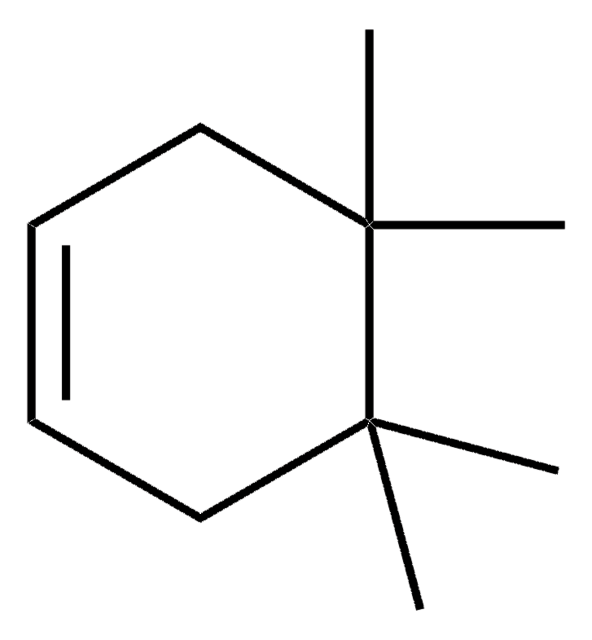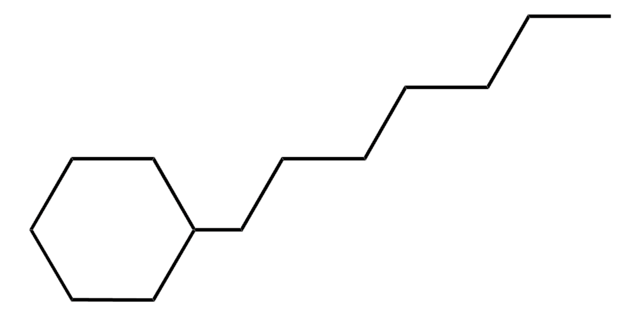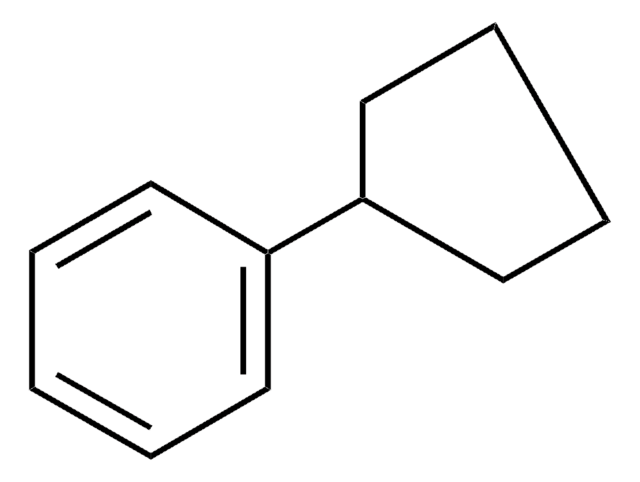110388
Butylcyclohexane
≥99%
Synonym(s):
1-Cyclohexylbutane
About This Item
Recommended Products
vapor pressure
2.9 mmHg ( 37.7 °C)
Quality Level
Assay
≥99%
autoignition temp.
475 °F
refractive index
n20/D 1.441 (lit.)
bp
178-180 °C (lit.)
mp
−78 °C (lit.)
density
0.818 g/mL at 25 °C (lit.)
SMILES string
CCCCC1CCCCC1
InChI
1S/C10H20/c1-2-3-7-10-8-5-4-6-9-10/h10H,2-9H2,1H3
InChI key
GGBJHURWWWLEQH-UHFFFAOYSA-N
Gene Information
human ... CYP1A2(1544)
Looking for similar products? Visit Product Comparison Guide
General description
Signal Word
Warning
Hazard Statements
Hazard Classifications
Flam. Liq. 3
Storage Class Code
3 - Flammable liquids
WGK
WGK 3
Flash Point(F)
105.8 °F - closed cup
Flash Point(C)
41 °C - closed cup
Personal Protective Equipment
Certificates of Analysis (COA)
Search for Certificates of Analysis (COA) by entering the products Lot/Batch Number. Lot and Batch Numbers can be found on a product’s label following the words ‘Lot’ or ‘Batch’.
Already Own This Product?
Find documentation for the products that you have recently purchased in the Document Library.
Customers Also Viewed
Our team of scientists has experience in all areas of research including Life Science, Material Science, Chemical Synthesis, Chromatography, Analytical and many others.
Contact Technical Service













